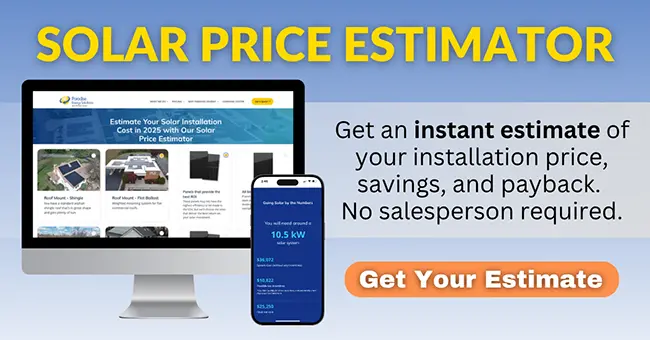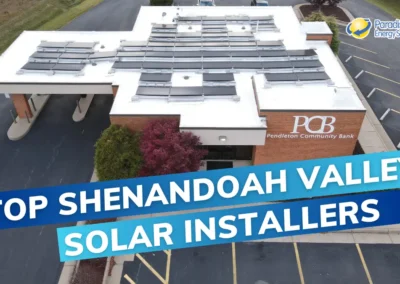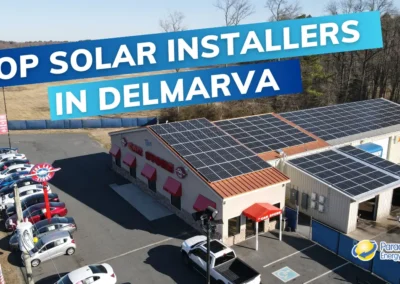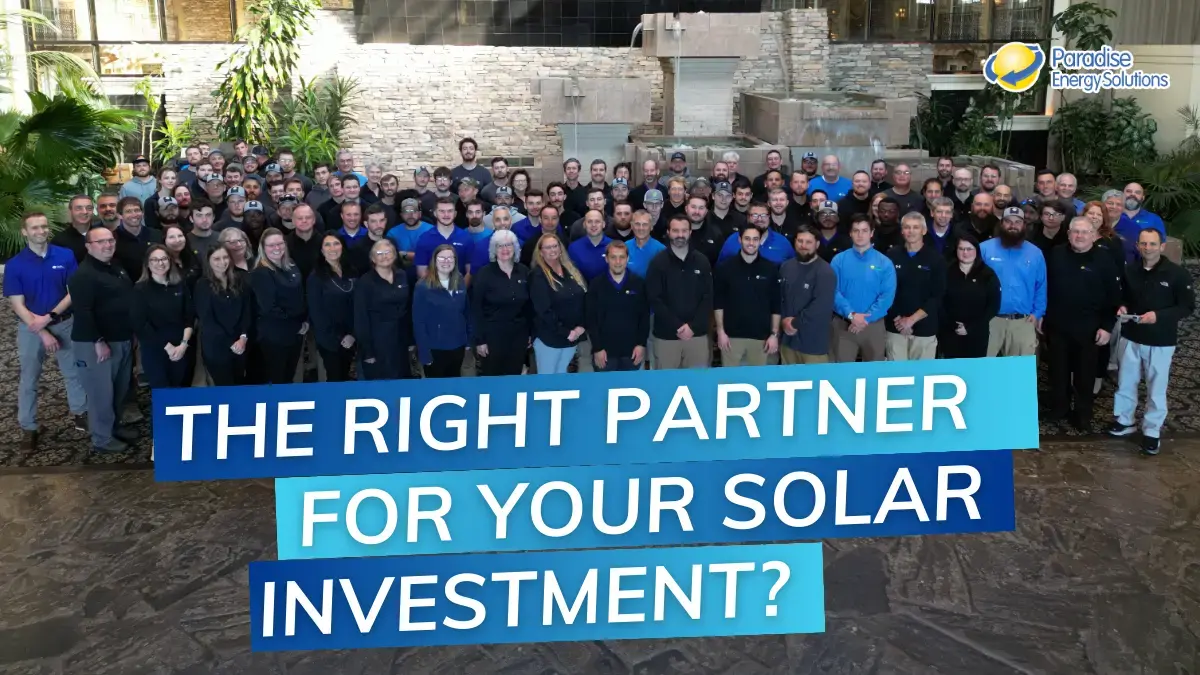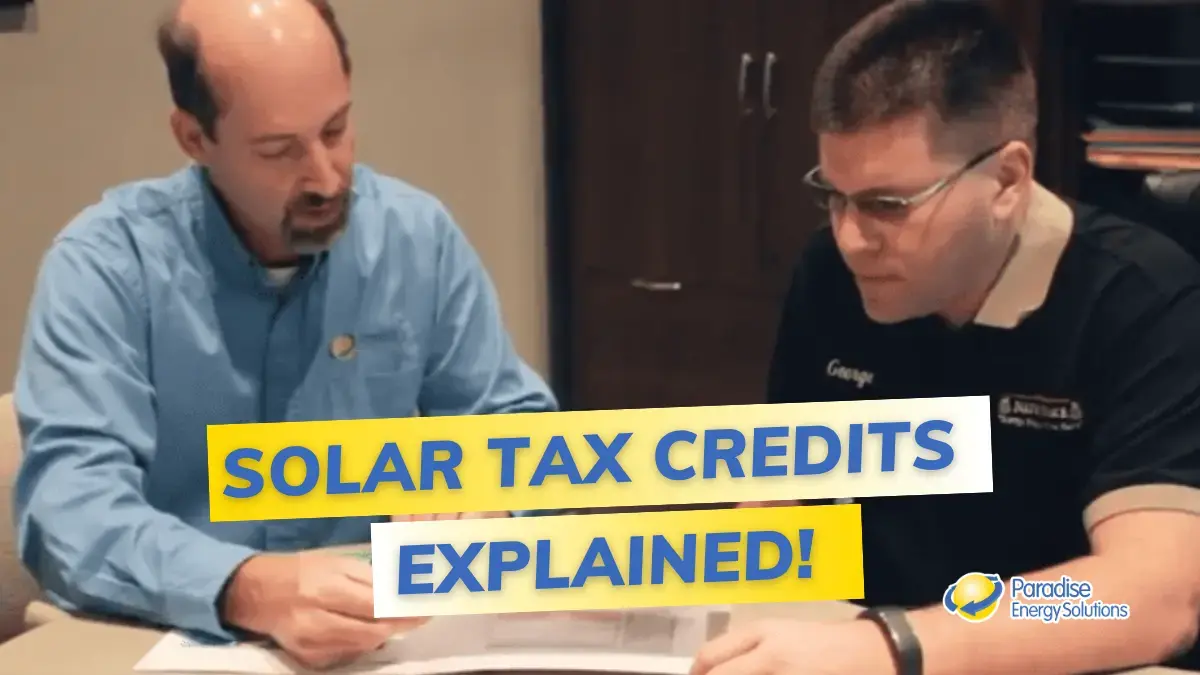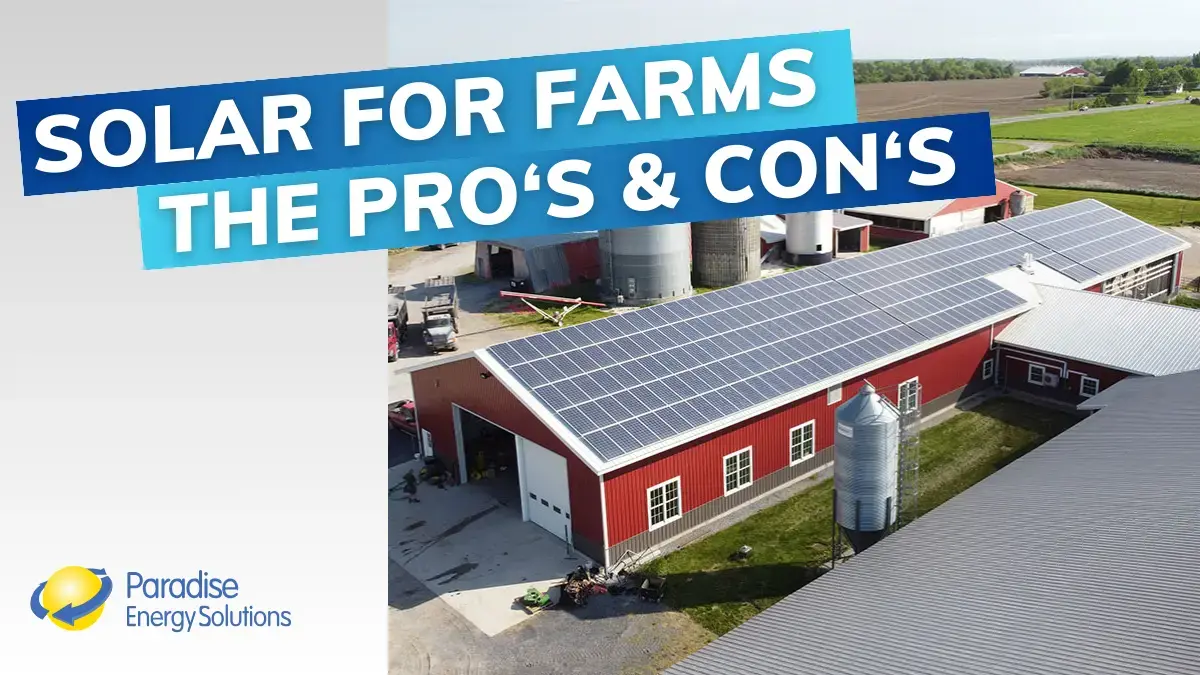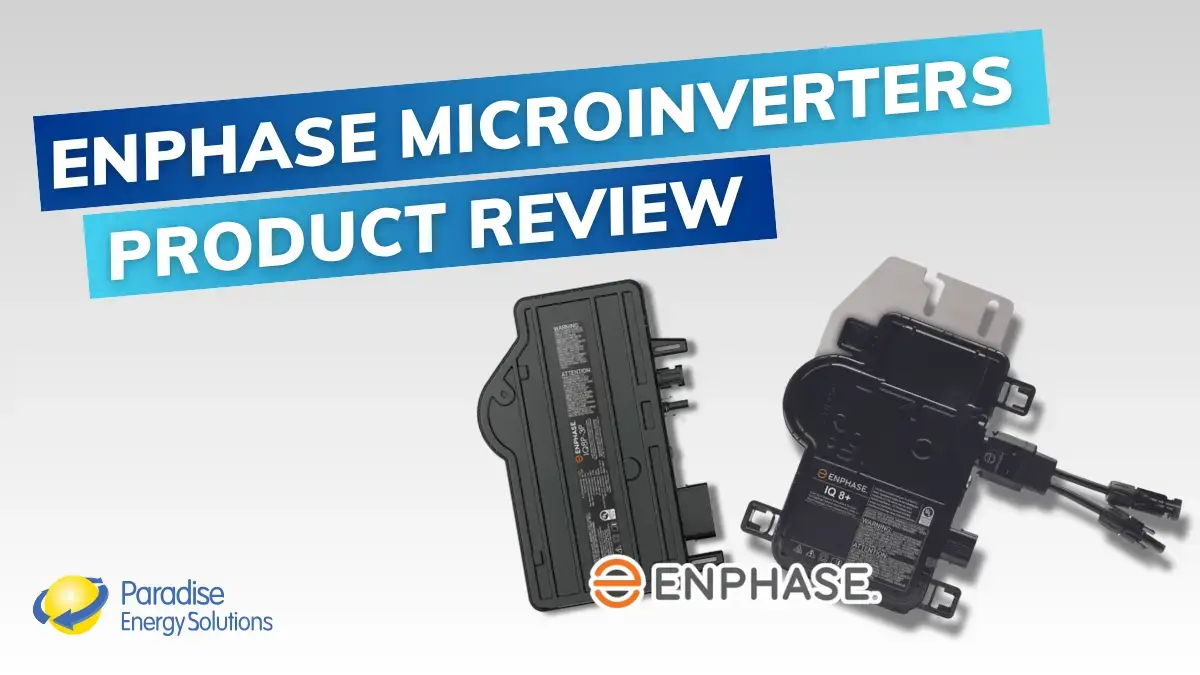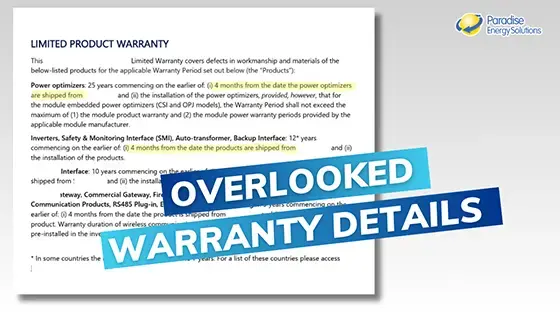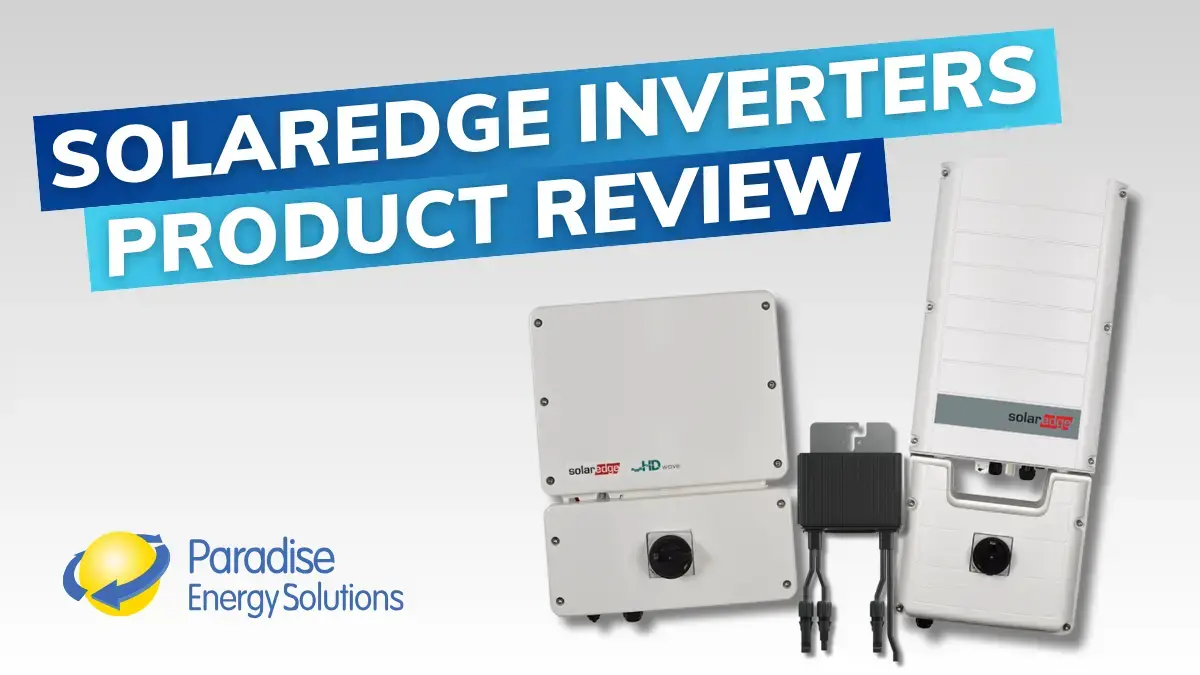Whether it’s a poultry house in southern Delaware or a home outside of Wilmington, solar panels are being installed all over the First State.
With great tax incentives and the opportunity to reduce a significant expense, now is an excellent time for Delaware’s businesses, farmers, and homeowners to invest in solar panels.
This comprehensive guide covers everything you need to know about installing solar panels in Delaware, including:
- Why solar is worthwhile in Delaware
- How to get started with a solar installation
- Typical installation costs and financing options
- Tips for choosing the best solar company
- Answers to frequently asked questions
Is Solar Worth It In Delaware?
If a state has over 200 sunny days per year, 4.2 peak sun hours a day (just .3 less than Florida), and medium to high electric rates, does that make it a prime location for solar panels?
That state is Delaware, and despite being the second smallest state, solar continues to be installed at a rapid pace thanks to its decent solar weather and strong solar policies.
Delaware’s Renewable Portfolio Standard requires 25% renewable energy by 2026, with a minimum of 3.5% from solar power. Along with strong net metering laws, a 30% federal tax credit, and other incentives, solar offers exceptional returns for Delaware homeowners and businesses.
How to Go Solar in Delaware?
The process for installing solar panels in Delaware is relatively straightforward.
- Request a Free Solar Site Assessment From 2-3 Reputable Local Installers
A reputable solar installer will likely schedule a visit to your property for a detailed site assessment. This visit allows you to discuss your solar objectives and ask any questions you may have. This solar expert will collaborate with you to pinpoint the ideal location for the solar equipment and gather essential details to create your custom quote.Pro tip: If the solar company refuses to come to your property for a consultation, it may be a red flag indicating that you should consider exploring other options. - Review Your Quote, Examine Your Financing Options, and Research Your Installation Company
A quote should arm you with the necessary knowledge to confidently navigate your investment in solar energy.Should you choose to proceed, dedicate time to thoroughly investigate and engage with your top solar companies. Examine their online reviews, ask to speak with their customers, and don’t be afraid to ask hard questions.Solar is a long-term investment, so it’s crucial to partner with an installation company with a proven success history and is structured to be around for the long haul. - The Installation Begins
After choosing an installer, they should handle all the permitting, paperwork, system design, installation, and final approvals needed to operate the system.The complete project timeline for a residential system (from the signed contract to the installed system) typically takes several months to develop. Once the installation crews can begin construction, the average residential installation typically takes a few days to a week.Commercial installations require a longer timeframe. They often take several months to a year to design, obtain permits, procure products, and finally, install the system. - After Inspections and Approvals, It’s Time to Energize Your System!
Finally, the time has come for your system to be energized. Let the savings begin!
The Cost of Solar Panels In Delaware
The solar panel installation cost in Delaware will vary, but as a rough estimate:
- Residential systems (5-20kW): $28,000 – $58,000+ before incentives
- Commercial systems (50-200kW): $135,000 – $410,000+ before incentives
However, generous incentives, such as the 30% federal tax credit, dramatically reduce the net cost.
For example, the average roof-mounted 10kW residential solar panel system will cost $33,610 before incentives. After the federal tax credit, the net cost would be $23,527.
| System Size | Cost Before Incentives | Tax Credit | Cost After Tax Incentives | Year One Electric Savings | Year One SREC Income |
|---|---|---|---|---|---|
| 10 kW | $35,370 | $10,611 | $24,759 | $1,375 | $569 |
| 15 kW | $46,285 | $13,886 | $32,399 | $2,063 | $478 |
| 20 kW | $57,200 | $17,160 | $40,040 | $2,750 | – |
| System Size | Cost Before Incentives | Tax Credit & Depreciation | Cost After Tax Incentives | Year One Electric Savings | Year One SREC Income |
|---|---|---|---|---|---|
| 50 kW | $137,000 | $76,850 | $60,150 | $5,000 | $1,594 |
| 100 kW | $229,300 | $128,626 | $100,674 | $10,000 | $3,188 |
| 200 kW | $416,900 | $135,949 | $183,040 | $20,000 | – |
A standard 100 kW commercial or agricultural roof-mounted solar panel system in Delaware would cost $225,700 before utilizing any available incentives. The net cost would be $99,094 after the 30% federal tax credit and depreciation.
How To Pay For Solar Panels In Delaware
In Delaware, you have various payment options for your solar panel system.
Opting to purchase the system outright with cash or a loan is a smart choice as it offers the best return on investment. By doing so, you can take advantage of incentives like tax credits, SRECS, and electric savings while also owning a valuable asset that reduces costs.
For those looking to sidestep the initial expense of solar installation, third-party financing options such as solar leases provide an alternative. With a solar lease, you can make minimal or no upfront payments in exchange for monthly installments.
Remember that the third party will maintain ownership of the system and reap the benefits of all available incentives when using a lease. There are often price escalators and other stipulations that you must be aware of beforehand. These agreements can also make it challenging to sell the property.
What Solar Panel Incentives Are Available In Delaware?
Delaware offers several incentives available for your solar panel investment.
The Tax Benefits
The main benefit is the federal tax credit. Homeowners will get a credit of 30% of the system installation cost. For example, if your system costs $25,000, your tax credit will be $7,500. However, your system must be installed by December 31, 2025, to qualify for the tax credit.
The solar tax credit is a little more complex for commercial and agricultural systems. It starts at 30% for systems under 1 MW AC and has the opportunity to grow to 70%. The commercial tax credit will expire in 2027, and additional FEOC equipment requirements will take effect in 2026. These requirements are expected to make it more challenging to qualify.
In addition to the tax credit, businesses can capitalize on accelerated depreciation, taking 100% of the federal depreciation deduction in the first year. 100% of the state depreciation will follow the five-year MACRS schedule.
Additional Insight: Visit our commercial tax benefits blog to learn more.

